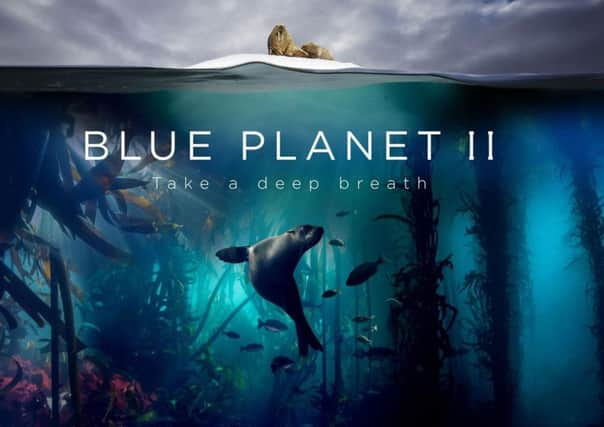Ben Caldecott: The case for spending aid budget on conservation to save planet


Global nature is in crisis and this is undermining poverty alleviation efforts, human welfare, and economic development. Habitat loss, the erosion of ecosystem services, climate change, and pollution are exacerbating poverty and erasing – or increasing the fragility of – development gains around the world.
Protecting and restoring nature is essential for securing genuinely sustainable development, particularly in the poorest countries.
Advertisement
Hide AdAdvertisement
Hide AdThe UK has excelled in efforts to support international development. The Department for International Development (DfID) is a world leader in poverty alleviation and humanitarian assistance. Britain is alone in the G7 in having met the UN target of spending 0.7 per cent of national income on development assistance, and is the third largest donor in the world, after the United States and Germany.
Now we urgently need to extend these huge achievements to sustainable development through environmental protection and the support of biodiversity and habitats.
We must do much more. Our country has a rich heritage in the field of natural history and conservation, exemplified by Charles Darwin, Dame Jane Goodall, and Sir David Attenborough.
At our disposal is an unparalleled network of conservation organisations and research institutes. Given this expertise, the failure to at least match other developed countries’ commitments is both surprising and disappointing.
Advertisement
Hide AdAdvertisement
Hide AdGreater funding for global nature conservation through the UK’s international aid budget, particularly through charismatic UK-branded projects and programmes, can capture and channel the imagination.
There is a groundswell of public support for action to conserve and restore nature, particularly after the huge popularity of the BBC’s Blue Planet II. Funding nature can be used to secure public support for the often-criticised international aid budget.
Polling from Bright Blue last year highlighted the public scepticism about current aid spending, with only a third of respondents aged under 40 saying that they feel proud of the 0.7 per cent target – a figure which falls to 29 per cent amongst the over 65s.
These are all reasons why, in a new report published by Bright Blue and the Conservative Environment Network, entitled Saving Global Nature: Greening UK Official Development Assistance, we argue that the Government should allocate at least £1bn of new money per year from 2020 for global nature through a new Global Conservation Fund paid for through the UK international aid budget. This should rise to at least 10 per cent of the development budget by 2025.
Advertisement
Hide AdAdvertisement
Hide AdThe new fund would be paid for through a combination of growth in the development budget – as the result of a growing economy – and by ending ad hoc contributions to multilateral institutions such as the World Bank, often made at the end of the financial year to meet the 0.7 per cent target because the UK has not yet figured out how to allocate the funds.
This rushed approach and reliance on multilateral institutions is a missed opportunity for creating strategic, compelling, and effective UK-branded development projects and programmes.
We also argue that nature should become a key filter for the allocation and prioritisation of all UK international aid. Developing countries with habitats and biodiversity of global or regional significance should be actively prioritised, particularly in the Commonwealth. Development assistance can support a wide range of conservation activities, from better enforcement to sustainable livelihood creation.
The fragility of the global environment not only threatens the flora and fauna for which we are custodians, but the future prosperity of communities around the world. Given the UK’s substantial international aid budget and expertise, there is a compelling case for us to lead international efforts to conserve nature.
Advertisement
Hide AdAdvertisement
Hide AdWe now need to step up. The Global Conservation Fund would create a major UK branded and delivered programme that resonates with the public – making a lasting difference to the environment and to development in the poorest countries around the world.
Ben Caldecott is the lead author of Saving Global Nature: greening UK Official Development Assistance. He is a Senior Associate Fellow at Bright Blue and a co-founder and Board Member of the Conservative Environment Network.